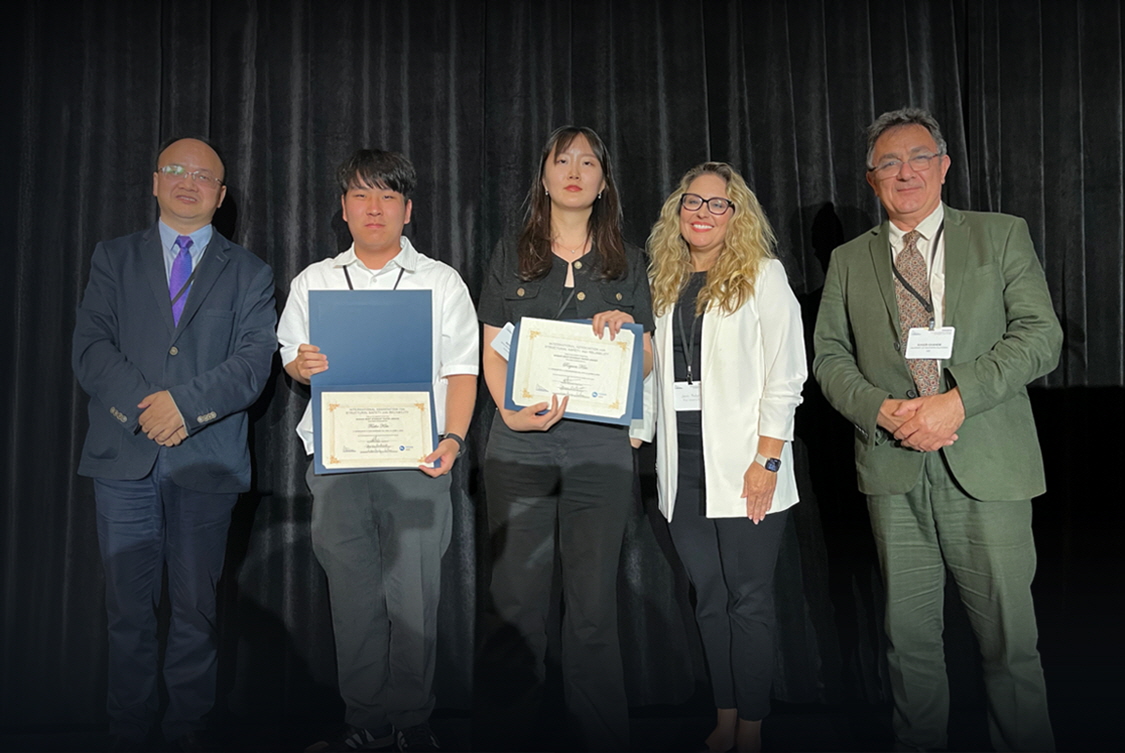- About
- Academics
-
Undergraduate Programs
- Civil and Environmental Engineering
- Architecture and Architectural Engineering
- Mechanical Engineering
- Industrial Engineering
- Energy Resources Engineering
- Nuclear Engineering
- Materials Science and Engineering
- Electrical and Computer Engineering
- Naval Architecture and Ocean Engineering
- Computer Science and Engineering
- Aerospace Engineering
- Chemical and Biological Engineering
-
Graduate Programs
- Civil and Environmental Engineering
- Architecture and Architectural Engineering
- Mechanical Engineering
- Industrial Engineering
- Energy Systems Engineering
- Materials Science and Engineering
- Electrical and Computer Engineering
- Naval Architecture and Ocean Engineering
- Computer Science and Engineering
- Chemical and Biological Engineering
- Aerospace Engineering
- Interdisciplinary Program in Technology, Management, Economics and Policy
- Interdisciplinary Program in Urban Design
- Interdisciplinary Program in Bioengineering
- Interdisciplinary Program in Artificial Intelligence
- Interdisciplinary Program in Intelligent Space and Aerospace Systems
- Chemical Convergence for Energy and Environment Major
- Multiscale Mechanics Design Major
- Hybrid Materials Major
- Double Major Program
- Open Programs
-
Undergraduate Programs
- Research
- Campus Life
- Communication
- Prospective Students
- International Office
News
SNU Civil and Environmental Engineering Students Win Best Paper Awards at ICOSSAR 2025 for Groundbreaking Structural Safety Research
-
Uploaded by
대외협력실
-
Upload Date
2025.07.21
-
Views
481
SNU Civil and Environmental Engineering Students Win Best Paper Awards at ICOSSAR 2025 for Groundbreaking Structural Safety Research
- Propose novel technologies to enhance the reliability of structural and infrastructure systems in disaster response
- “We aim to continue advancing research in disaster resilience and engineering system reliability.”
▲ Taeha Kim (top) and Rayeon Kim (bottom), graduate students in the Department of Civil and Environmental Engineering at Seoul National University, receive Best Paper Awards from the ICOSSAR 2025 organizing committee.
Seoul National University College of Engineering announced that two graduate students, Taeha Kim (Ph.D. candidate) and Rayeon Kim (M.S. candidate) from the Department of Civil and Environmental Engineering, have received Best Paper Awards at the 14th International Conference on Structural Safety and Reliability (ICOSSAR 2025). The prestigious event was held at the University of Southern California (USC) in the United States.
Hosted every four years since 1969 by the International Association for Structural Safety and Reliability (IASSAR), ICOSSAR is the most prominent academic conference in the field of structural reliability. The conference presents the Student Best Paper Awards to recognize papers that demonstrate academic excellence and innovation.
Taeha Kim, a Ph.D. student supervised by Professor Junho Song at SNU’s Structural System Reliability Group, received the award for his paper titled “Bayesian Filter and Smoother for Joint Input-State Estimation of Hysteretic Structures.” The study was co-advised by Professor Sang-ri Yi, a former Ph.D. student from the same lab and now an assistant professor at Rice University.
The paper proposes a Bayesian filtering-smoothing framework for the joint estimation of unknown external loads and internal state variables in structures exhibiting hysteretic (nonlinear memory-dependent) behavior. By incorporating both the unknown input forces and auxiliary hysteretic variables into an augmented state vector, the framework maintains the computational efficiency of traditional Bayesian filters while significantly extending their applicability to high-dimensional nonlinear systems.
The method was successfully validated on a 9-story moment-resisting frame subjected to earthquake loads. Even using only noisy floor acceleration data, the model accurately reconstructed inter-story displacements and time-varying seismic input, garnering widespread attention from experts in the field.
Taeha Kim stated, “Moving forward, we plan to develop an adaptive noise covariance adjustment method within this framework to further enhance estimation accuracy.”
Also honored with a Best Paper Award, Rayeon Kim, a master’s student from the same lab, was recognized for her paper titled “A Causal Approach for Identifying Time-dependent Relationships between Critical Components in Interdependent Infrastructure Systems.”
Jointly conducted with Youngjun Kwon, a fellow Ph.D. student, the study applies causal inference theory to quantify dynamic interdependencies among critical infrastructure systems—such as power, water, and transport—and proposes a decision-support tool for post-disaster recovery strategies at the community level.
The research introduces a novel approach for establishing recovery strategies by applying causal relationships informed by interdependency analysis, rather than static correlations. The originality and practical relevance of the work were praised for contributing to infrastructure resilience and disaster mitigation planning.
Rayeon Kim commented, “This study can help formulate more realistic risk management strategies by identifying dynamic interactions among infrastructure systems, and I plan to further this research by developing a framework to evaluate integrated resilience in infrastructure networks across diverse disaster scenarios.”
[Contact Information]
Prof. Junho Song, Department of Civil and Environmental Engineering, Seoul National University / +82-2-880-8397 / junhosong@snu.ac.kr